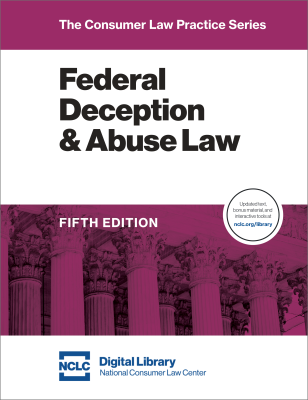A June 20 Supreme Court decision has significant implications for future Telephone Consumer Protection Act (TCPA) cases by fundamentally altering the way in which courts construe Federal Communications Commission (FCC) orders and rules. The following article discusses the case, its implications, and what practitioners should argue in litigation moving forward.
What the Decision Says
On June 20, 2025, in McLaughlin Chiropractic Associates, Inc. v. McKesson Corporation, 2025 WL 1716136 (U.S. June 20, 2025), a 6-3 majority of the Supreme Court held that the Hobbs Act (the Administrative Orders Review Act) does not preclude district courts in civil enforcement proceedings from rejecting an agency’s interpretation of a statute. Under the Hobbs Act, jurisdiction to determine the facial validity of final FCC orders is vested exclusively in the U.S. Courts of Appeal through a petition filed within sixty days after the entry of the order.
Prior to the Court’s decision, seven federal circuits had held that the Hobbs Act rendered rules and orders by the Federal Communications Commission (FCC) unreviewable at the district court level or even at the circuit court level after sixty days. See NCLC’s Federal Deception & Abuse Law § 6.2.5.1.1.
The Supreme Court held the Hobbs Act grants the courts of appeals exclusive jurisdiction to issue pre-enforcement declaratory judgments invalidating agency rules and orders but does not restrict district courts from considering the validity of agency rules and orders in the context of the facts of a government or a private suit that seeks relief other than a declaratory judgment. The district court’s authority to reject an agency’s statutory interpretation is subject only to principles of estoppel, preclusion, and applicable case law.
The Facts of the Case
The case involved an FCC order that interpreted the TCPA. McLaughlin, the petitioner, sued McKesson Corporation for allegedly sending unsolicited advertisements via a “telephone facsimile machine” and thereby violating the TCPA. After the district court granted class certification, the FCC issued a declaratory ruling, In re Amerifactors Financial Group, L.L.C., 34 F.C.C. Rcd. 11950 (2019), interpreting the term “telephone facsimile machine” to exclude online fax services. This ruling undermined the class certification order, which drew no distinction between faxes received on traditional fax machines and faxes received through online fax services. See NCLC’s Federal Deception & Abuse Law § 6.8.2.
McLaughlin, the plaintiff, sought to challenge the FCC’s interpretation, but the district court and the Ninth Circuit refused to entertain it, relying on the Hobbs Act. The Supreme Court’s decision will allow McLaughlin to argue in district court that the FCC incorrectly construed the TCPA, such that the class was properly certified and class members who received faxes through online fax services need not be excluded.
What the Decision Means
The Court’s holding has the immediate effect of abrogating decisions that have held that FCC rules and orders are binding on district courts, including cases from the Second, Fourth, Sixth, Seventh, Eighth, Ninth, and Eleventh Circuits. See NCLC’s Federal Deception & Abuse Law § 6.2.5.1.1. More generally, the decision calls into question a wide range of previously settled issues involving FCC orders relevant to both TCPA plaintiffs and defendants regarding the requirements for callers making TCPA-covered calls.
This uncertainty will swing both ways, undermining defenses proffered by callers to TCPA challenges as well as the basis for claiming certain calls are illegal. The courts will now need to consider the extent to which the FCC’s regulations and declaratory rulings are consistent with congressional intent, as expressed in the TCPA.
Notably, in a prior decision, PDR Network, L.L.C. v. Carlton & Harris Chiropractic, Inc., the Supreme Court indicated that the Hobbs Act may apply differently to legislative rules promulgated by executive agencies, which are subject to the requirements of notice and comment rulemaking and carry the force of law, as opposed to interpretive rules, which are never binding on courts. The ruling at issue in McLaughlin was interpretive, but the decision draws no distinction between legislative and interpretive rules. Based on this silence, it may be that the Hobbs Act poses no barrier to challenging FCC regulations, as well as declaratory rulings in private enforcement actions.
What to Argue Moving Forward
After McLaughlin, individual litigants can challenge FCC orders in the district court despite the Hobbs Act. In such a challenge, the FCC order is no longer authoritative but is only persuasive authority. In determining the validity of an FCC order, courts will apply the principles set forth in Loper Bright Enters. v. Raimondo, 603 U.S. 369 (2024).
Specifically, the Court in Loper Bright endorsed “the traditional rule that questions of statutory interpretation are for the courts to resolve, giving appropriate weight—not outright deference—to the judgment of those whose special duty is to administer the questioned statute.” See Loper Bright at n.3 (internal quotations and modification omitted).
Loper Bright appears to approve the standard articulated in the pre-Chevron case Skidmore v. Swift & Co., 323 U.S. 134 (1944). The Loper Bright Court identified several factors from Skidmore that it believed were particularly persuasive in deferring to an agency’s rulemaking when a statute is not facially clear:
-
Whether the agency’s interpretation is supported by “factual premises within [the agency’s] expertise,” presumably through thorough factfinding;
-
Whether the interpretation was “issued contemporaneously with the statute at issue”; and
-
Whether the interpretation of the statute has “remained consistent over time.”
Many of the FCC’s TCPA rules and regulations meet these tests, but practitioners must still be prepared to articulate why the court should or should not be persuaded by the reasoning underpinning any relevant FCC pronouncement. FCC actions supported by notice and comment rulemaking, detailed consumer complaint records, and a history of enforcement are likely to be sustained under the analysis required by Loper Bright.
Challenging and Defending FCC Regulations
Practitioners should pay special attention to the statutory language authorizing the FCC to promulgate regulations supporting TCPA violations or affirmative defenses and should be prepared to present arguments to the district court about whether the regulation is or is not consistent with Congress’s grant of regulatory authority to the FCC. The TCPA explicitly requires the FCC to craft regulations implementing the statute’s restrictions on calls using artificial and prerecorded voice and protecting consumer privacy rights. The fact that Congress specifically authorized consumers to bring private causes of actions to enforce the FCC’s regulations under both TCPA §§ 227(b)(3) and 227(c)(5) is an unmistakable indication that Congress intended the FCC to have robust authority to adopt regulations that would have the force of law.
In light of the Supreme Court’s decision in Corner Post, Inc. v. Board of Governors, 603 U.S. 799 (2024), which holds “parties may always assail a regulation as exceeding the agency’s statutory authority in enforcement proceedings against them,” any FCC action or pronouncement can be challenged as invalid and subjected to judicial review whenever it impacts a litigant’s legal or financial interests. In effect, every TCPA order or regulation that has not already been construed in a precedent that is binding on the district court under principles of estoppel, preclusion, or stare decisis, is subject to challenge under the prevailing law of the jurisdiction where an enforcement action is filed.
This creates both risks and possible opportunities for TCPA litigants and defendants. Consumer advocates should take care before challenging FCC interpretations to ensure that any challenge is supported by good facts and brought in appropriate circuits.
Useful in future litigation will be existing circuit court decisions upholding FCC regulations protecting consumers from unwanted automated calls. For example, FCC orders holding that text messages are considered calls within the scope of the TCPA and clarifying how consent can be revoked have already been subject to judicial review and have been affirmed on their merits. As such, principles of stare decisis provide some insulation against further challenges to these orders. See NCLC’s Federal Deception & Abuse Law §§ 6.3.1.1, 6.4.5.5.
Consumer advocates who encounter arguments regarding FCC TCPA interpretations are encouraged to consult NCLC’s treatise, Federal Deception & Abuse Law Chapters 6 and 7. They are also encouraged to attend the TCPA sessions at NCLC’s upcoming Consumer Rights Litigation Conference in Washington, D.C., November 13–15, 2025.
Conclusions
Ultimately the impact of McLaughlin is to set FCC actions on the same footing as rules and orders put forth by other federal agencies such as the FTC and the CFPB, which are not subject to the Hobbs Act. Some claims and defenses under the TCPA can be re-argued before district courts where the FCC’s interpretation would otherwise have been unreviewable under the Hobbs Act. Nevertheless, the TCPA will remain a powerful statute safeguarding consumers’ privacy and economic rights.


